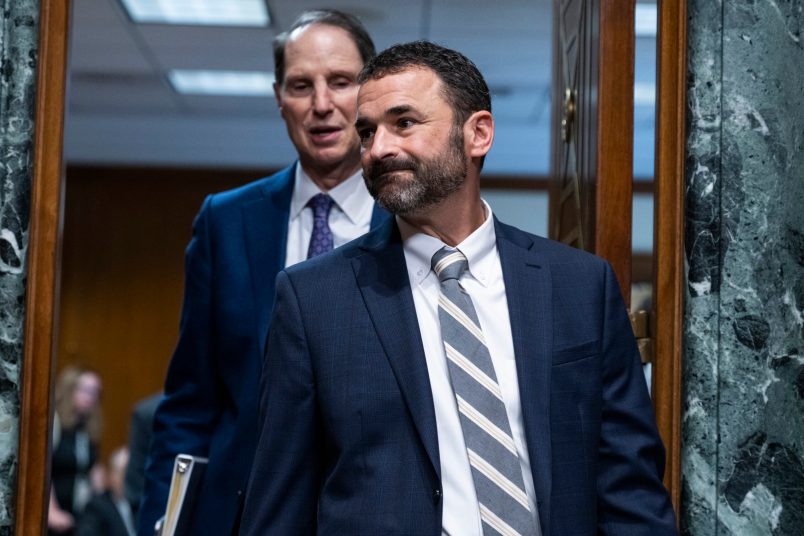This article first appeared at ProPublica. ProPublica is a Pulitzer Prize-winning investigative newsroom. Sign up for The Big Story newsletter to receive stories like this one in your inbox.
Flush with $80 billion in new funding, the IRS is aiming to ramp up audits of wealthy taxpayers and large corporations, according to a strategic operating plan it released Thursday. The 150-page plan also includes a lengthy list of proposed changes intended to improve customer service, upgrade the agency’s notoriously outdated computer systems, boost hiring and even “explore making it easier” to file tax returns directly with the IRS for free.
Until a spurt of funding during the early pandemic and then the passage of the Inflation Reduction Act, the IRS had been hobbled by a decade of budget cuts, causing audit and enforcement rates to plummet. As the report notes: “Taxpayers earning $1 million or more were subject to an audit rate of just 0.7% in 2019 — a sharp decline from 7.2% in 2011. We will increase enforcement for high-income and high-wealth individuals to help ensure they are paying the taxes they owe.” It cites employment taxes, excise taxes, and estate and gift taxes as areas of focus. The plan promises to comply with a Treasury Department directive not to increase audit rates for small businesses and people making $400,000 or less.
ProPublica has been chronicling the tax agency’s woes for almost five years, first in a series titled “Gutting the IRS,” which examined the slashing of its budget and its consequences in reduced enforcement, as well as in decreased volume and quality of audits of the rich. ProPublica also published articles that showed how a person making $20,000 was more likely to be audited than a person making $400,000 and a map that revealed the geographic overlay of poverty, race and high audit rates.
ProPublica followed its first IRS series with “The Secret IRS Files,” a second multiyear series that has explored how the U.S. tax system favors the rich, including how its focus on income allows people with massive wealth to sidestep taxes on an epic scale — to the point where some of the wealthiest people, such as Jeff Bezos, had years in which they paid no federal tax.
In comments to The Washington Post about the new IRS plan, Deputy Treasury Secretary Wally Adeyemo said: “One of the things that people talk about when they say that the tax code is unfair is, if you’re low-income, you’re more likely to be audited than if you’re wealthy. … That is not consistent with tax fairness.”
The plan, released by recently confirmed IRS Commissioner Daniel Werfel, aligns with the remarks made by President Joe Biden in his most recent State of the Union address: “I think a lot of you at home agree with me that our present tax system is simply unfair,” Biden said. He reiterated his proposal for what he calls his billionaire minimum tax, which would mandate a 20% minimum levy on income, including unrealized capital gains, for people with a net worth of $100 million or more.
The IRS plan also includes an initiative to “study the feasibility” of allowing taxpayers to file directly with the agency. That study will likely face opposition from companies such as Intuit, the maker of the widely used TurboTax software. In another series, “The TurboTax Trap,” ProPublica documented in exhaustive detail multiyear efforts taken by tax prep companies to undercut free tax-filing.
Sen. Ron Wyden, D-Ore., chair of the Senate Finance Committee, applauded the IRS plan. “The bulk of this funding,” he noted in a statement, “will go toward building up the IRS’s capacity to root out cheating by sophisticated, wealthy individuals and companies with highly complex structures.” (The Inflation Reduction Act legislation directed an additional $45.6 billion to IRS enforcement, through September 2031, on top of its previously allotted budget.)
Republicans were less enthusiastic, calling the plan “big government at its worst,” among other things. In January, House Republicans renewed their attempts to reduce the agency’s funding.







It’s about damn time.
Couldn’t find a cat pic. This will have to do.
While we’re at it, how about auditing this a-hole first? Or Frist.
Taking steps that would empower the government to assure that its citizens “Render therefore unto Caesar the things which are Caesar’s” violates their sincerely held religious beliefs.
Flattering, but, “Ew!”
Happy Easter